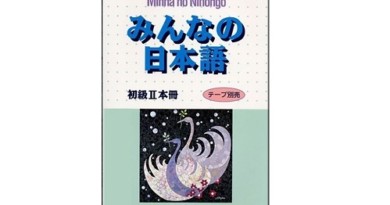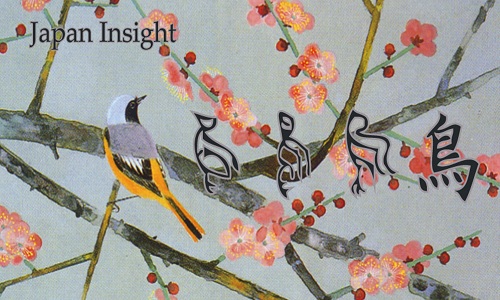Contents
- 1 Learn minna no nihongo lesson 16
- 1.1 6. Mondai
- 1.1.1 Exercise 1: Listen and answer questions
- 1.1.2 Exercise 2: Listen and select the corresponding picture
- 1.1.3 Exercise 3: Listen and choose true or false
- 1.1.4 Exercise 4: Fill the appropriate particles in the blank
- 1.1.5 Exercise 5: Fill the appropriate wprds in the blank
- 1.1.6 Exercise 6: Choose the words from the box, give the true form and fill in the blank
- 1.1.7 Exercise 7: Read the following paragraph and choose true or false
- 1.1 6. Mondai
Learn minna no nihongo lesson 16
6. Mondai
To do the “Mondai” section, you need “minna no nihongo” book and audios for listening
Exercise 1: Listen and answer questions
With this exercise, you will hear the questions and answer. When listening, stop for 30 seconds to 1 minute in each sentence to write the answer. With the questions that you don’t hear clearly, listen them the second time. After listening 1 or 2 times to answer the question, you can listen again to hear each word clearly and copy it to improve your listening skill and remember words better.
1.
2.
3.
(How to go from your home to the airport?)
4.
5.
Exercise 2: Listen and select the corresponding picture
For this exercise, before listening, you should look at the pictures to guess the content. When listening, memorize the keywords and compare them with the pictures to choose the best picture.
1.
男:会社までいつもどうやって行きますか。
(How do you always go to the company?)
女:JRで大阪まで行って、地下鉄に乗り換えて、日本橋で降ります。それから会社まで 歩いて行きます。
(I take the JR to Osaka, then change to the subway and get off at Nihonbashi. Then I will walk to the company.)
男:そうですか。
(Is that so.)
Answer: 1
2.
男:すみません。カリナさんはどの人ですか。
(Excuse me. Who is Ms. Karina?)
女:あの人ですよ。
(She is that person.)
男:え?
(Who?)
女:あの背が高くて、髪が短い人です。
(She is that tall person with short hair.)
男:どうも。
(Thank you!)
Exercise 3: Listen and choose true or false
With this exercise, the listeners will listen to the conversation, then there will be a key point about the problem that will be raised in the conversation. The listeners must choose whether the content is true or false according to what they has listened. If it is true, select 〇 (maru) and if it is false, choose ✖ (batsu).
In this listening section, you should pay attention to the concluding sentence to see whether that sentence is given in a positive or negative form in order to avoid being “tricked” when listening.
1.
男:勉強は何時に終わりますか。
(What time does your study end?)
女:3時に終わります。
(It ends at 3 o’clock.)
男:じゃ、勉強が終わってから、テニスをしませんか。
(Well, why don’t we play tennis after study?)
女:いいですね。
(Sounds good.)
男:じゃ、3時半ごろロビーで待っています。
(Well, I’m waiting for you in the lobby around 3:30!)
女の人は3時まで勉強して、それからテニスをします。
(The woman will study until 3 o’clock, then she will play tennis.)
Answer:(〇)
2.
女:寮はどうですか。
(How is the dormitory?)
男:静かで、きれいです。
(It’s quiet and clean.)
女:駅から何分ぐらいかかりますか。
(How long does it take to get there from the station?)
男:バスで20分ぐらいです。
(It takes about 20 minutes by bus.)
女:そうですか。少し遠いですね。
(Is that so? It’s a bit far, isn’t it?)
男の人の寮は駅から近くて、静かで、きれいです。
(The man’s dormitory is near the station, quiet and clean.)
Answer:(✖)
3.
女:旅行はどうでしたか。
(How was the trip?)
男:疲れました。土曜日に広島を見て、日曜日に長崎へ行きました。
(I’m tired. I saw Hirosima on Saturday and went to Nagasaki on Sunday.)
女:そうですか。忙しかったですね。
(Is that so. Busy, wasn’t it?)
男の人は週末に旅行をしました。
(The man traveled at weekend.)
Answer:(〇)
Exercise 4: Fill the appropriate particles in the blank
1. 国へ帰ってから、大学( )入って、経済の研究をします。
2. 大阪駅からJR( )乗って、京都駅で降ります。
3. 京都で古いお寺 ( )見ました。
4. 日本は山 ( が )多いです。
5. 北海道はきれいで、食べ物 ( )おいしいです。
6. 会社 ( )やめてから、何をしますか。
7. ジョギングをして、シャワー ( )浴びて、学校へ行きます。
8. 大学 ( )出てから、父の会社 ( ) 働きます。
Exercise 5: Fill the appropriate wprds in the blank
1. デパートへ ( )、買い物して、それから映画を見ます。
2. 銀行でお金を( )から、買い物に行きます。
3. 日本橋から地下鉄に( )、大阪駅でJRに(乗り換えて)、甲子園で降ります。
4. シャワーを( )から、プールに入ってください。
Exercise 6: Choose the words from the box, give the true form and fill in the blank
1. カリナさんは富士大学の ( )、美術を勉強しています。
2. 佐藤さんは頭が ( )、すてきな人です。
3. 新しいパソコンは ( )、便利です。
4. 東京は (にぎやかで)、おもしろい町です。
Exercise 7: Read the following paragraph and choose true or false
1.( ✖ )
(Osaka is a quiet city with many old temples.)
2.
(We see a lot of foreigners in Kyoto and Nara.)
3.
( 〇 )
(There are sea and mountains near Kobe.)
4.( ✖ )
(The new airport in Osaka is beautiful but small.)
Above is instruction to Learn minna no nihongo lesson 16. See other lessons in category : learn Japanese with minna no nihongo or: Japanese for beginers.

